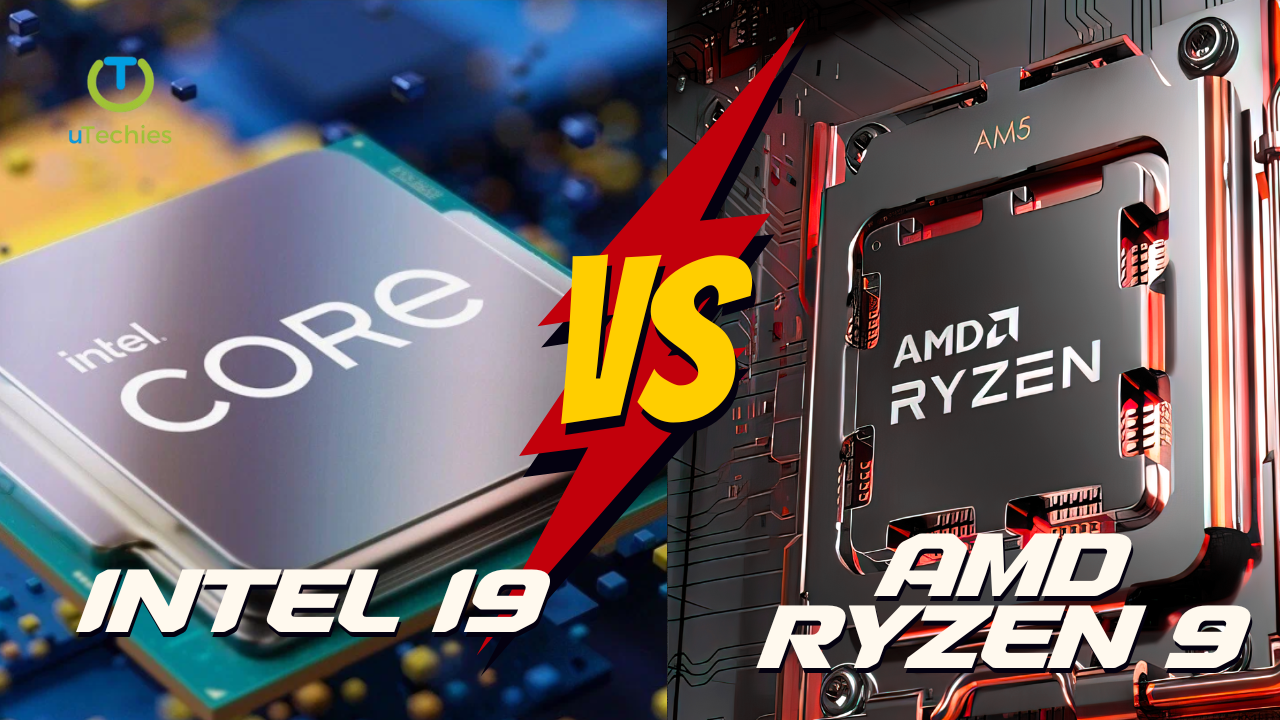The ongoing rivalry between Intel and AMD has shaped the CPU market for years, with each brand delivering high-performance processors tailored to diverse user demands. This article examines the key aspects of the Intel Core i9 and AMD Ryzen 9 processors, focusing on specifications, performance benchmarks, power efficiency, and pricing to determine which one stands out.
A Closer Look at AMD Ryzen 9 and Intel Core i9
AMD Ryzen 9
The AMD Ryzen 9 series is crafted for top-tier computing needs, featuring standout models like the Ryzen 9 7950X3D, which offers up to 16 cores and 32 threads. Built using AMD’s cutting-edge 5nm process, these processors are designed to excel in multi-threaded tasks such as video editing, rendering, and scientific applications. With a focus on efficient performance, Ryzen 9 processors deliver powerful outputs while maintaining comparatively lower power consumption, making them a go-to for multitasking professionals.
Intel Core i9
The Intel Core i9 series, including models like the i9-14900K, is celebrated for its exceptional single-threaded performance. Leveraging a hybrid architecture that integrates Performance (P) cores and Efficient (E) cores, Intel processors manage demanding tasks and background processes with precision. Capable of achieving clock speeds of up to 6.0 GHz, Core i9 processors are highly appealing for gamers and users who depend on single-core intensive applications.
Performance Head-to-Head
Core Count and Clock Speed
| Feature | AMD Ryzen 9 | Intel Core i9 |
|---|---|---|
| Clock Speed (GHz) | Up to 5.7 | Up to 6.0 |
| Number of Cores | Up to 16 | Up to 14 |
| Number of Threads | Up to 32 | Up to 28 |
| Cache Size (MB) | 70 | 30 |
| Power Consumption (W) | 105 | 125 |
AMD Ryzen 9 processors typically dominate multi-threaded workloads due to their higher core and thread counts. Conversely, Intel’s Core i9 processors shine in single-threaded tasks, thanks to their superior clock speeds.
Benchmark Insights
Benchmark tests reveal that AMD’s Ryzen 9 excels in multi-threaded applications, outperforming Intel in tasks such as video rendering and editing. However, Intel’s Core i9 consistently leads in single-threaded benchmarks, a crucial factor for gaming and other clock-speed-dependent applications. Gamers often favor Intel’s processors for their ability to handle single-core-heavy tasks with ease.
Efficiency and Thermal Dynamics
Power efficiency is a vital consideration. The AMD Ryzen 9 series operates at a lower thermal design power (TDP) of approximately 105W, compared to the 125W of Intel’s Core i9 series. This reduced power consumption translates into lower energy costs and less heat generation, making Ryzen 9 a more energy-efficient choice for compact or quieter setups.
Pricing and Value Proposition
Price often plays a decisive role in choosing a CPU. AMD Ryzen 9 processors are generally more competitively priced, offering excellent value for users seeking high multi-threaded performance without overspending. On the other hand, Intel Core i9 processors, while pricier, justify their cost for users prioritizing single-threaded performance, particularly gamers.
Final Verdict: The Ideal Choice for You
Selecting between the AMD Ryzen 9 and Intel Core i9 boils down to your specific requirements:
- For Multi-threaded Tasks: If your primary workload involves tasks like video editing, software development, or other intensive multitasking, the AMD Ryzen 9 emerges as the superior choice with its higher core and thread counts.
- For Gaming and Single-threaded Applications: If gaming or single-core performance is your focus, the Intel Core i9 stands out, delivering unparalleled speed and responsiveness.
Both CPUs excel in their respective domains, offering remarkable performance tailored to different user needs. Carefully evaluate your budget and usage scenarios to determine the processor that aligns best with your goals.






